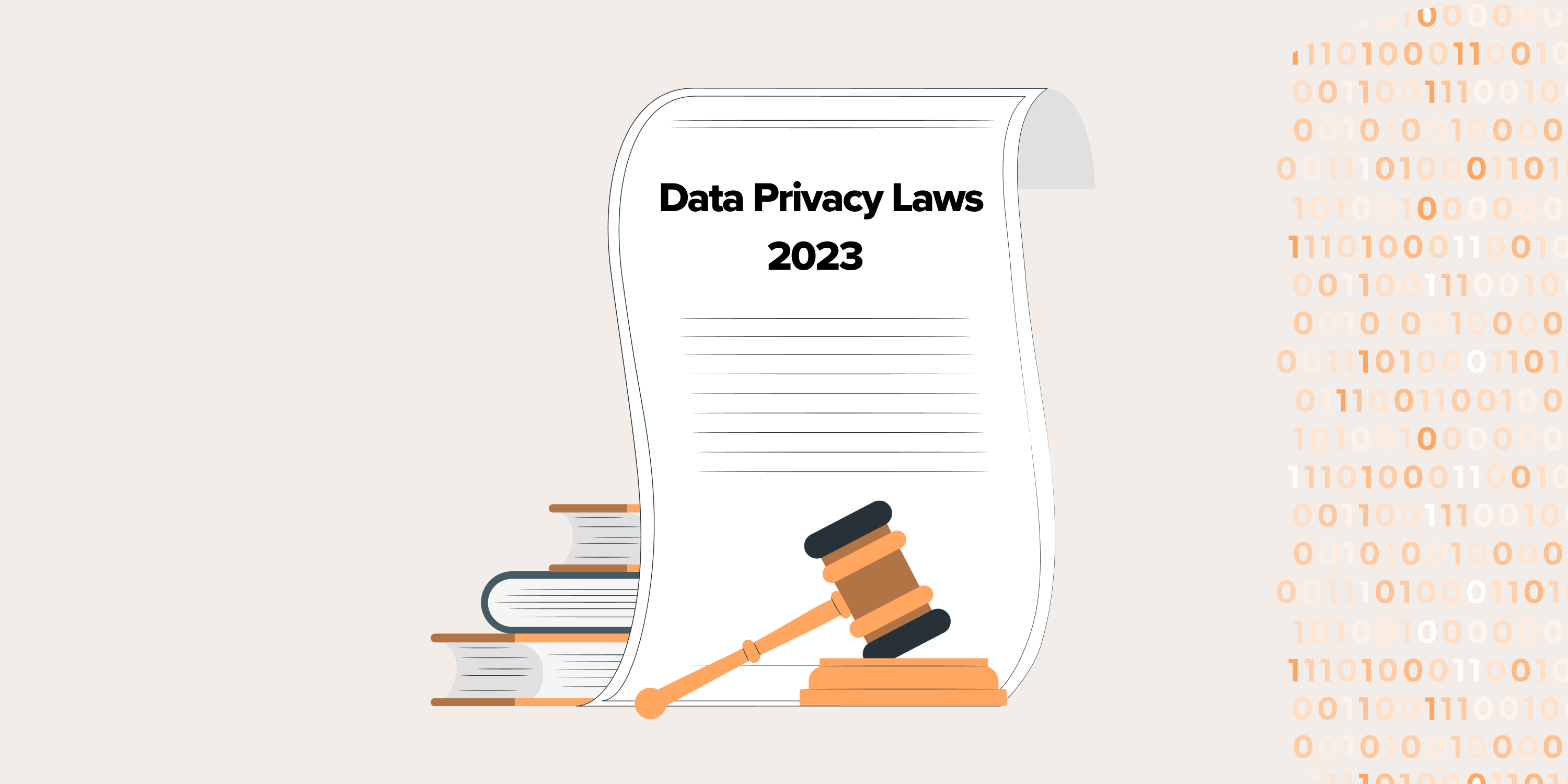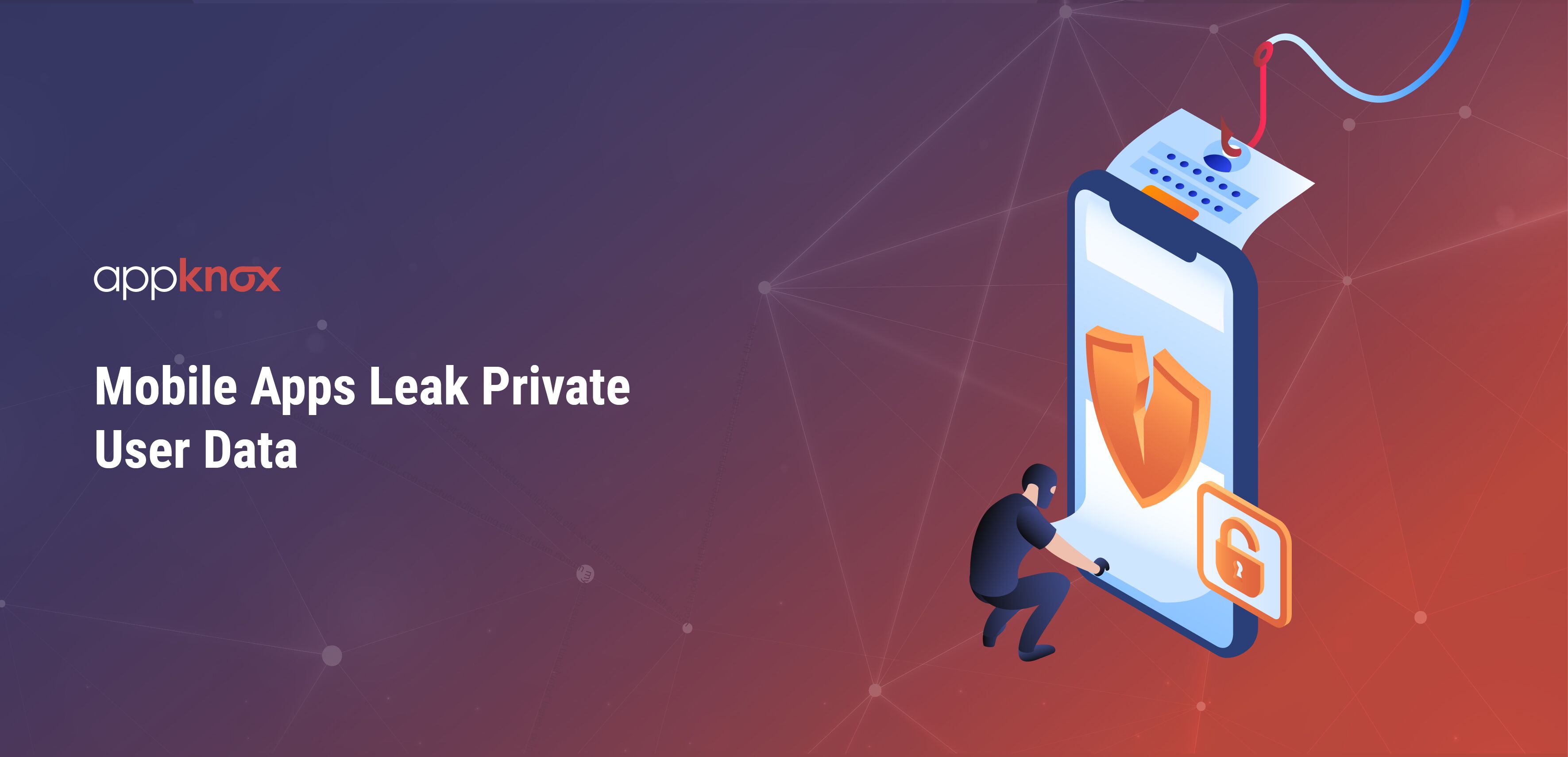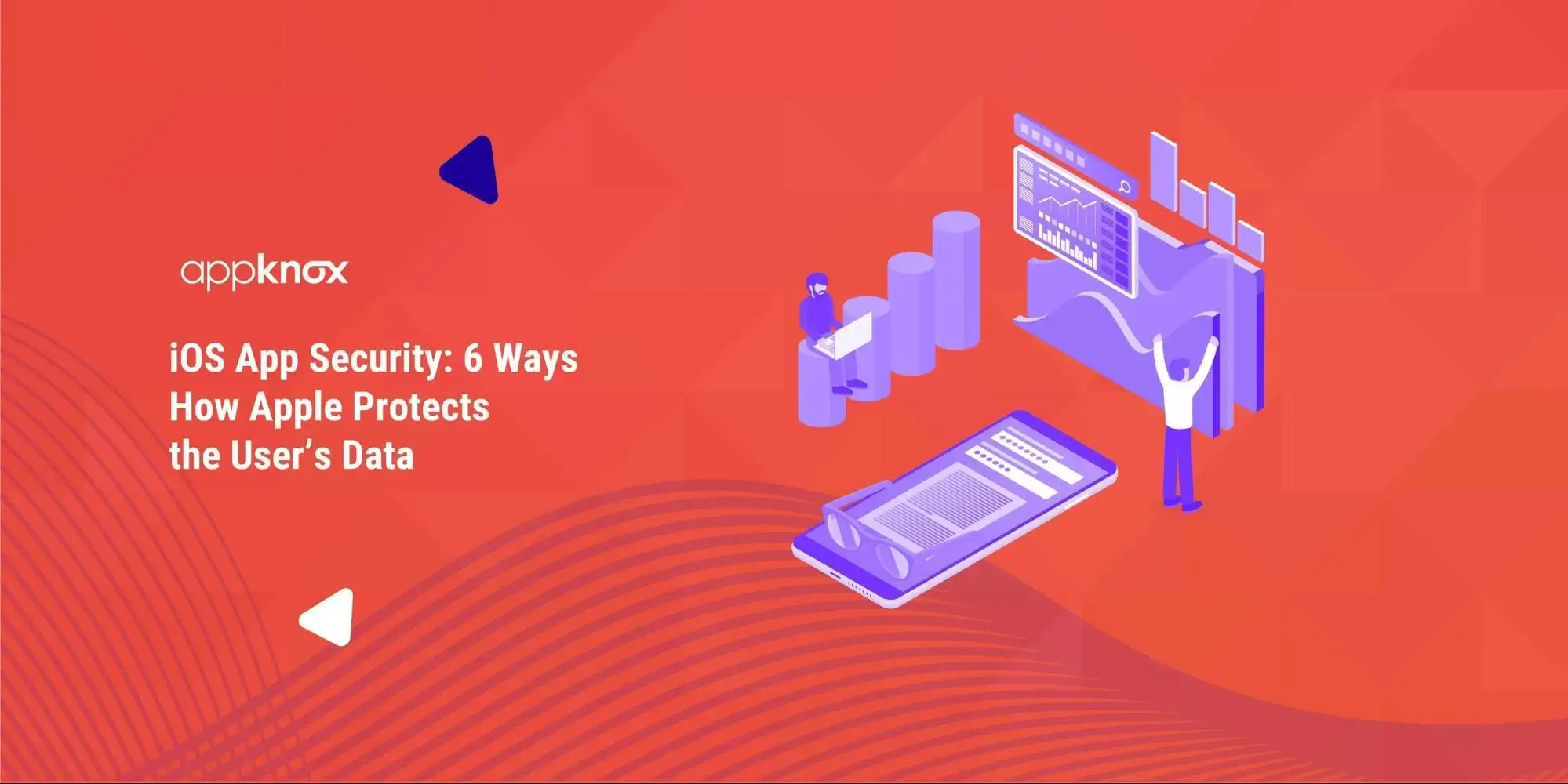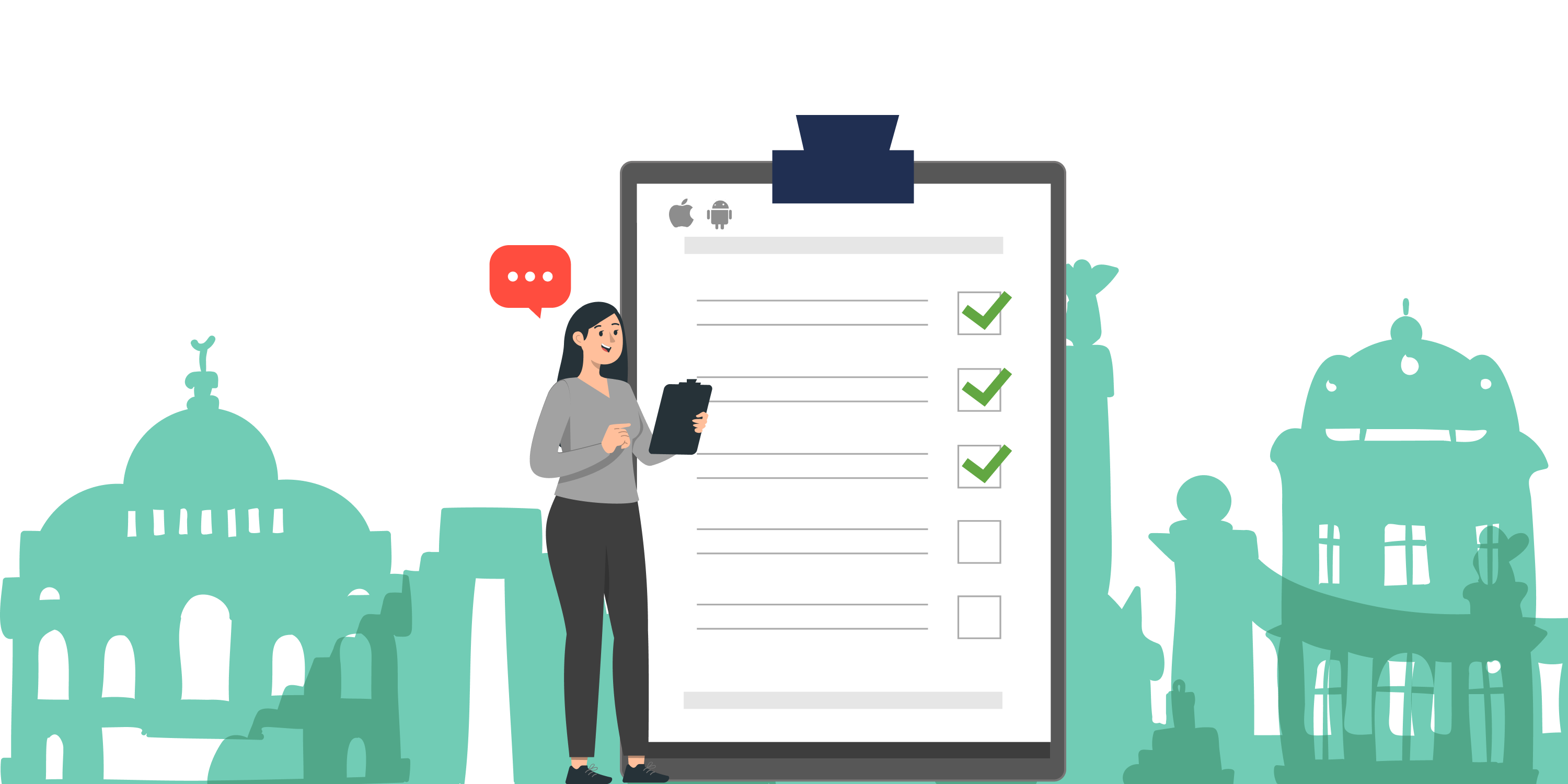Data privacy has become a hot-button issue in recent times, leading to the implementation of stringent laws governing who can collect information and how it is accessed. Governments across the world are increasingly turning their attention towards ensuring data protection for citizens.
Non-compliance with regulations can be catastrophic for any organization. Not only do hefty fines threaten the pockets, but lengthy and costly lawsuits also have the potential to leave an irreversible dent in its reputation. Therefore, taking measures that ensure compliance is critical to prevent considerable losses down the road.
Organizations looking to protect their users' data must stay up-to-date on the latest data privacy laws that can directly impact them and their customers. Ensuring compliance with these laws is paramount for any successful business.
Data Privacy Laws That Organizations Must Be Aware of in 2023
There are several data privacy laws that organizations may be subject to, depending on their location and the type of data they handle. Some examples of laws that organizations may need to comply with include the following:
1) Stop Hacks and Improve Electronic Data Security (SHIELD) Act
The SHIELD act was enacted to strengthen New York's data security laws. Organizations with data on New York citizens must maintain safeguards to protect the residents' private information.
According to the SHIELD act, "Private information" includes the following:
Individual's name, social security number, credit or debit card numbers, driver's license numbers, financial account numbers, biometric information, email addresses, and password. So organizations must implement reasonable administrative, technical, and physical safeguards to protect all this information of a new york resident.
Failure to comply with SHIELD can lead to penalties of $5,000 per violation which can add up to a maximum of $2,50,000 over a period of time.
2) Digital Markets Act (DMA)
The goal behind DMA was to prevent the 'digital gatekeepers,' namely companies like Google, Facebook, Apple, and Microsoft, from being able to impose unfair conditions on their competitors. It is meant to 'even the playing field' and ensure fair competition, where all organizations have equal access to resources to promote their business.
Organizations that fail to comply with DMA regulations face a hefty fine of 10% of their global annual turnover, plus an additional 20% if violations are repeated. Non-compliance can also result in the company being barred from making any future acquisitions for a specified period.
The European Parliament approved the act in March 2022, and the law will mostly become applicable on May 2, 2023.
3) Personal Information Protection Law (PIPL)
The law was enacted in August of 2021 by China and created specific rights to protect the personal information of individuals.
PIPL is immensely strict in nature and has already led to international organizations such as Yahoo and LinkedIn shutting down their operations in China, citing a "Challenging operating environment." Various Chinese companies have also been fined for violating the regulations of the law.
4) General Data Protection Regulation (GDPR)
GDPR is a comprehensive data protection law that applies to organizations in the European Union (EU) and the European economic area (EEA). It sets out strict requirements for how organizations can collect, use, and store personal data.
Organizations worldwide must adhere to GDPR when managing data belonging to EU residents. Those who fail this obligation can be subject to severe penalties, with a maximum fine of €20 million available for non-compliance.
GDPR came into effect in May 2018. It consists of 99 individual articles and is considered the world's most robust legal framework for data protection.
Good Read: Guide on How To Make Your Mobile App Compliant to EU’s GDPR
5) California Privacy Rights Act (CPRA)
California businesses that handle personal records must meet the standards of CPRA that grant consumers control over their data. It enables them to decide whether they want it sold or removed altogether - giving unprecedented choices and safeguarding against misuse.
Initially known as the California Privacy Protection Act (CCPA), the act was passed through a ballot initiative in November 2020. It was amended to be the California Privacy Rights Act (CPRA) which went into effect on January 1, 2023.
In addition to all the rights included in CCPA, CPRA was amended to include the following:
- Right to rectification
- Right to restriction
- Sensitive personal information
6) Health Insurance Portability and Accountability Act (HIPAA)
HIPAA is a federal law that applies to organizations in the healthcare industry. It sets out requirements for protecting the privacy and security of personal health information without the patient's consent Business needs to be compliant with HIPPA.
HIPAA prohibits healthcare providers, clearinghouses, health maintenance organizations (HMOs), and healthcare businesses from disclosing health information to anyone aside from the patient or their authorized personnel without the patient's knowledge.
There are five sections to the act, known as titles. HIPAA was enacted in 1996 by former US president Bill Clinton and is widely recognized as having modernized the flow of healthcare information in the US.
7) Virginia's Consumer Data Protection Act (CDPA)
The consumer data protection act (CDPA) is a comprehensive data protection law that was enacted in Virginia in March 2021. It applies to "Covered entities," defined as any person that controls or processes the personal data of at least 100,000 consumers or processes or controls the personal data of at least 25,000 consumers and derives over 50% of gross revenue from the sale of personal data.
Violations of the CDPA can result in fines of up to $7,500 per violation. It is essential for organizations operating in Virginia to ensure that they comply with the CDPA and other applicable data protection laws.
CDPA is known to have similarities with GDPR and CPRA.
8) Payment Card Industry Data Security Standard (PCI DSS)
PCI DSS is a set of security standards that apply to organizations that accept credit card payments. It requires organizations to take specific steps to protect cardholder data and prevent breaches.
PCI DSS is administered by the payment card industry security standards council (PCI SSC). The PDI SSC was created by MasterCard, Visa Inc, Discover, American Express, and JCB International to improve the transaction process.
Under this act, organizations must test and scan their systems and applications for vulnerabilities.
9) Detect and Fix Security Vulnerabilities With a Security Platform
Securely protecting individuals' data is a top priority for organizations due to the stringent requirements of PCI DSS and other data privacy laws. A meaningful way that businesses can proactively guard against vulnerabilities in their mobile applications is by performing regular tests and scans.
Organizations have two options available when it comes to scanning these apps:
Working with an in-house tool can be a huge hassle, as false positives are common, and personnel resources need to go toward continual manual testing. This approach not only saps the company's budget but also takes valuable team time.
Or you can select Appknox - the perfect choice for securing your applications quickly, efficiently, and cost-effectively – all while significantly reducing the risk of false positives. With Appknox's robust suite of vulnerability assessment tools, such as Static code analysis, DAST testing & API security testing, you can have confidence knowing your apps are secure from any hidden vulnerabilities.
Take the next step to protect your mobile apps – book a free demo with Appknox today and receive expert advice on keeping them secure.




 Gartner and G2 recommends Appknox | See how we can help you with a free Demo!
Gartner and G2 recommends Appknox | See how we can help you with a free Demo!
 Prateek Panda
Prateek Panda










_HighPerformer_HighPerformer.png)
_BestEstimatedROI_Roi.png)

